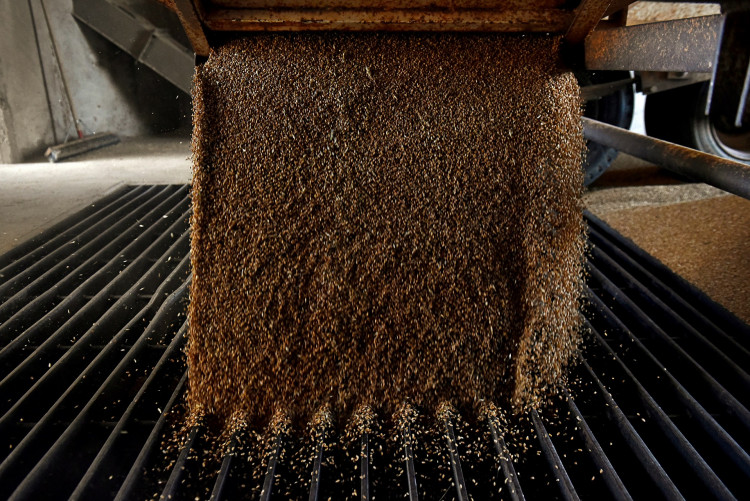Global Stabilization Effort Last year, Russia and Ukraine, in separate agreements with the United Nations and Turkey, managed to stabilize global food prices through the Black Sea grain shipment agreement. Since the signing, the Global Food Price Index of the United Nations Food and Agriculture Organization had been in a decline from its peak in March 2022. However, post the termination of the Black Sea grain agreement on July 18 this year, international grain prices began to surge once again.
The Food and Agriculture Organization noted a 1.3% month-on-month increase in its Global Food Price Index for July. Prices for wheat saw their first month-on-month rise in nine months, with sharp hikes in vegetable oil and rice indices.
To continue exporting grains, Ukraine has started using the Izmail port situated by the Danube River. Additionally, Ukraine introduced a temporary route in the Black Sea this month, with two cargo ships successfully reaching Turkey.
Turkey, however, has expressed concerns about the security risks associated with Ukraine's temporary Black Sea route. In a bid to reactivate the Black Sea grain transport route, Turkish President Erdogan is set to hold talks with Russian President Putin soon.
On August 28, Omer Celik, spokesperson for Turkey's ruling Justice and Development Party, announced that Erdogan would soon visit the Russian city of Sochi along the Black Sea coast to discuss reopening the grain shipment agreement with Putin. Turkey's Foreign Minister Cavusoglu is also slated to visit Russia for discussions with Russian Foreign Minister Lavrov on the Black Sea grain issue, followed by talks with the United Nations. While Turkish officials have not confirmed the exact date of Erdogan's visit, Kremlin spokesperson Peskov also remained tight-lipped, stating only that both parties are preparing for the meeting.
Two unnamed Turkish officials, in interviews with the media, suggested that Erdogan's visit to Russia could be scheduled for September 8, right before he attends the G20 summit in New Delhi, India, slated for September 9-10. President Putin will be absent from the G20, with Foreign Minister Lavrov representing Russia.
Turkey maintains close collaborations with Russia in several sectors, including in the Middle East, the South Caucasus region, armaments, and energy. Turkey, a NATO member, has refrained from imposing sanctions on Russia. Within the Black Sea region, Turkey's position is unique, controlling the sole passage from the Black Sea to the Mediterranean.
Erdogan and Putin have maintained regular contact, with at least ten calls this year, including a video call in April. Following the end of the Black Sea grain agreement, hopes in the U.S. and Ukraine have pivoted towards Turkey. Ukrainian Foreign Minister Kuleba even referred to Erdogan as the "only" individual who might convince Russia to rejoin the Black Sea grain agreement.
Ahead of talks with Russia, Turkish Foreign Minister Cavusoglu visited Ukraine last week, consulting with Ukrainian President Zelensky and Foreign Minister Kuleba about rebooting the Black Sea grain transport agreement.
Cavusoglu urged Ukraine to halt its efforts to establish a new route in the Black Sea, citing security concerns. While Kuleba expressed confidence in the new route, he concurred that reigniting the Black Sea grain route would be the best option for Ukraine.
After the Black Sea grain agreement lapsed, both Russia and Ukraine issued security warnings. Russia has cautioned that vessels heading to Ukrainian ports via the Black Sea might be perceived as potential military supply ships. Conversely, Ukraine warned that vessels entering Russian ports from the Black Sea could be viewed in a similar light.
Due to attack concerns, major cargo ships have ceased traveling to Ukraine across the Black Sea. Smaller ships now avoid crossing the Black Sea, choosing instead to navigate through the territorial waters of NATO members Turkey, Bulgaria, and Romania, entering the Danube River and ultimately arriving at the Ukrainian port of Izmail.
Meanwhile, this month Ukraine began testing a temporary Black Sea route. This route starts at the Ukrainian Black Sea port of Odessa, with cargo ships setting sail close to the Ukrainian coast, entering Romanian and Bulgarian waters, and then moving into Turkish waters.
According to Ukraine's initial plans, cargo ships trapped in Ukrainian Black Sea ports since the onset of the Russia-Ukraine conflict will utilize this temporary route to exit Ukraine. On August 16, a ship flying the flag of Hong Kong, Joseph Schulte, left Odessa and by the 18th, successfully passed through Ukrainian, Romanian, and Bulgarian waters, entering the Turkish strait.
The Joseph Schulte, which has been stranded in Odessa since February 2022, carries over 2100 containers, amounting to roughly 30,000 tons of cargo. It was the first to successfully navigate the temporary route. Experts in the shipping industry generally believe its success is due to flying the Chinese flag.
By last Saturday, another vessel, PRIMUS, flying the Liberian flag, also left Odessa, marking the second successful navigation through the temporary route. PRIMUS, trapped in Odessa since February 2022, was loaded with steel products bound for Italy.
If Turkey and Russia reach an agreement on the Black Sea grain route, Ukraine might also join in on discussions, possibly renewing last year's pact. The termination of the agreement in July this year has put global grain prices under pressure. Reigniting the route is essential not just for the two nations, but for the global food market as well.






